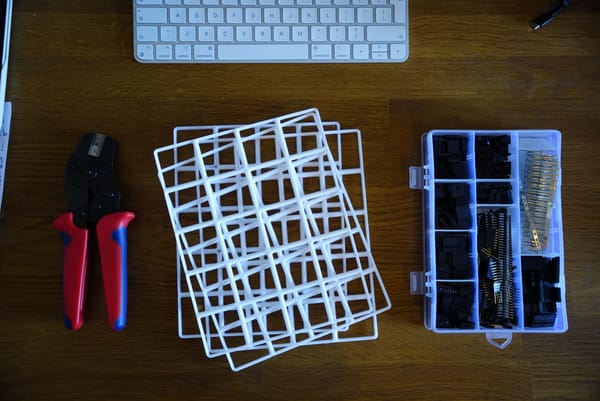Too big to succeed

In business and economics, you'll often hear about organisations which are "too big to fail". If you've been around the 2007 financial crisis, you'll know what this refers to - something integral and vital to a healthy economy, so much so that its failure could cause significant economic disruption.
Too big to fail organisations or endeavours are rare. What's far more common yet often overlooked are pursuits around us that are too big to succeed!
I am guilty of this too, but can manage it. I'm a functioning over-engineer but a simplicity enthusiast!
Most of my project start simple and manageable - once concept, one idea, one solution, one problem.
The things I set my mind to often start small, fun and manageable. And then, as I'm wrestling, I get great ideas worth pursuing. Eventually, I give myself so much to do/ explore, that the original energy is gone and all I'm left with is a giant pile of to-dos.
This is a valid approach - it's necessary to allow a flood of great ideas to materialise into actions and value. It makes sense. The end product will no doubt be superior when all of the features I conjured up for it since its conceptual birth are implemented.
However, the more likely outcome in reality is not a superior product - it's no product at all.
There's a discipline to shipping things, and it involves keeping your aspirations in check while you focus on that version 1.
This, I found, requires not just a good problem + solution. You have to deliberately identify for yourself what "good enough" means when you relate the possible solutions back to the issue that put you on that path in the first place.
But that's won't be a silver bullet - it's tempting to complicate things, especially as you get closer to the metal and new problems emerge in your pursuit.
You're not always going to stick to what you identified as good enough, and you shouldn't judge yourself for it. You'll learn a lot by allowing yourself to be seduced by opportunities to make things better or easier in the long run.
Just remember that you always have to option to trim back to that good enough, should you need it. What's important is that you ship.
Real artists ship. When something becomes too big to succeed, stand back and start trimming its complexity ruthlessly until you can see an easy, walkable path towards a version 1.
Bottom line:
- start small with a core problem and identify what's the definition of good enough solutions, not perfect
- articulate in a sentence the core product/ offering/ project and its good enough features - it should almost always be a complete, lovable, but simple concept
- stay small to keep the risk of dumping this into the graveyard of unfinished projects low
- return to small if you find yourself frustrated or lost amongst complexity
- collect along the way all of those interesting cool ideas to improve on the good enough - you can always do that (and with a lot more success) once you ship something and feedback is coming in
- have fun - doing something towards an end-goal (project/ product/ service/ chore) that you can close off is extremely fun are rewarding




